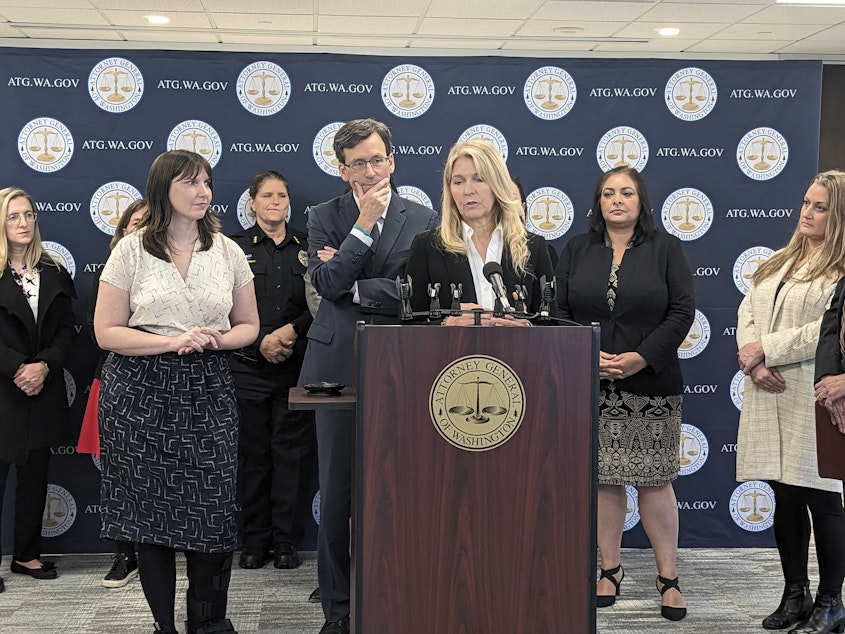Thousands of untested sexual assault kits finally processed in Washington state

Washington state has effectively eliminated its extensive backlog of untested sexual assault evidence kits.
Officials announced Thursday that more than 10,000 backlogged kits have now been cleared from evidence rooms across the state and submitted for testing.
Roughly 99% of those kits have already been tested, according to state Attorney General Bob Ferguson.
Remaining kits have been sent to labs and are currently being tested.
The Washington State Patrol is still reviewing about 1,000 tested kits, according to the Attorney General’s office.
That process should be completed by the end of the year.
The backlog of sexual assault kits has been a significant issue in Washington, and across the country, for years.
Some of the untested kits in the state dated back to the 1980s, according to the Attorney General’s office.
"Each of those kits was a survivor whose voice was never heard, that never had a pathway to justice,” said Democratic state Rep. Tina Orwall of Des Moines at a press conference Thursday.
Orwall has sponsored multiple bills to address the issue since 2015.
“We’re here to close that chapter. And what I would say to the survivors is that we're so sorry the system failed you, but we've also created a system to make sure that never happens again," she said.
Orwall said she’s asked multiple agencies over the years how the backlog got so bad to begin with.
She said she’s often heard that adequate resources didn’t exist, but she also suspects there was an underlying culture that meant getting all kits tested perhaps wasn’t a priority.
She said no systemwide strategy for how to do the work existed.
Leah Griffin is a survivor and long-time advocate for a better system.
She said she feels the term backlog is a misnomer because it implies that kits were eventually going to be tested but law enforcement simply hadn’t gotten to it yet.
“This wasn’t a backlog so much as it was law enforcement made a decision to not test rape kits, to not test sexual assault kits,” Griffin said.
Griffin said each of the kits represented a survivor who wanted accountability and evidence to exist of the assault that occurred.
“And 10,000 of them didn’t get the common courtesy to even test the evidence in the first place,” she said.
Griffin first began advocating to fix this issue after she had to advocate for 14 months in order to get her own evidence kit tested.
When the state first began to tackle the issue, there wasn’t even a full accounting of how many untested kits existed at local law enforcement agencies.
Since 2015, laws have been passed to make testing of sexual assault kits mandatory. A tracking system has been put in place. There’s also now a requirement that kits are tested within 45 days of being sent to a lab.
Griffin said the changes that have occurred represent a radical change in a culture that long dismissed sexual violence.
Officials say multiple things have contributed to the ability to process the thousands of previously untested kits.
As recently as January 2022, a report from the state Auditor's Office found more than 6,000 kits remained to be tested.
The report noted that the pandemic had slowed progress on testing.
Officials said Thursday that the creation of a high throughput lab in Vancouver, Washington, better staffing levels, new technology, more resources, and the easing of pandemic burdens have all played a part in being able to process the remaining kits.
Overall, the process has so far resulted in more than 2,000 hits in the national DNA database, and helped solve over 20 cases.
Clearing the huge number of untested kits is a big step, but it's not the end of the road.
Sexual assault kits continue to come in. According to the Washington State Patrol, an average of 121 new cases have come into labs every month this year.
“There’s always going to be an advance of need, and there has to be an advance of capacity to stay in front of that need,” said Chris Loftis of the Washington State Patrol.
Orwall said the requirement that kits be tested within 45 days will help ensure future backlogs don’t occur.
She said if that target is not being met, it will be a signal that more resources are needed.
Advocates say more work is needed in other aspects of the system, too, including support for survivors and increasing prosecution rates.

